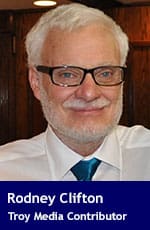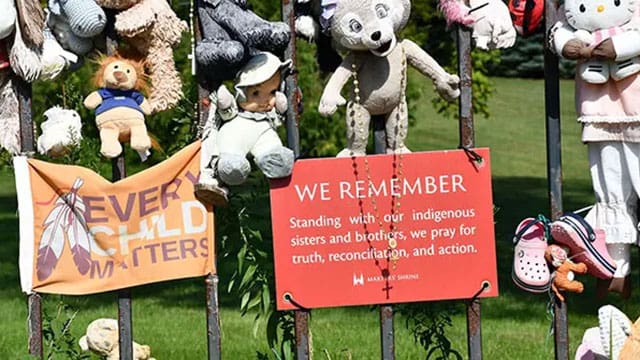An uninvestigated allegation of a murder at a residential school undermines TRC Report, casting doubt on its integrity

For interview requests, click here
The Truth and Reconciliation Commission of Canada (TRC) Report was published a decade ago. Since then, surprisingly few people have provided a critical but fair assessment of this 3,500-page, seven-volume mammoth. Most academics and journalists – those we expect to be serious critics of commission reports – have, so far, accepted the findings as the gospel truth.
This is hardly ideal because many of the Calls to Action are fast being enacted into laws with minimum evaluation that will, without a doubt, have grave and expensive consequences for Canadian society including Indigenous people.
Many Canadians believe that being critical of the TRC Report shows that they are disparaging – or worse, racist – towards Indigenous people. But not all critics are racists, and few racists, either non-Indigenous or Indigenous, make good, persuasive arguments.
Unfortunately, most Canadians do not realize that the TRC Report has many troubling claims.
Let us examine one of these claims.
DY (her initials) was a student in the Anglican Residential School at Washakada (Elkhorn), Manitoba. She testified:
 |
| Recommended |
| Report urges balanced view of Residential Schools legacy
|
| Catholic Church finally repudiates the Doctrine of Discovery
|
| House of Commons finally describes residential schools as genocide
|
I remember was, there was all these screams, and there was blood over the, the walls. [Crying] … and we were told that if we, if we were, if we ever told, or tried to run away, we would, the same thing would happen to us. [Crying] So, it was a dangerous time for, for children, and for me at that, those days. [Crying] We never really knew who would be next to be murdered because we witnessed one already. [Crying]
This statement is undoubtedly horrifying. But is it true?
Unfortunately, no one knows, not even the Commissioners.
Two of the Commissioners, Murray Sinclair and Wilton Littlechild, are lawyers and listened to DY’s heart-breaking testimony, yet they never questioned her about what she reported. They also never questioned other students who were living in the school at the time, and they never even questioned school employees about DY’s claim.
Even more disconcerting, the Commissioners never referred this evidence to the RCMP so the claim could be investigated.
Canadians may justifiably question the professional integrity of the Commissioners, particularly the lawyers, when they were presented with evidence of a child’s murder but took no action to verify the claim. It’s especially odd that such a serious allegation is included in a report that claims to seek the “truth.”
If the claim is true, shouldn’t those involved be brought to justice? If the claim is false, shouldn’t the testimony be redacted from the Report and, more importantly, redacted from the minds of Canadians?
Of course, one untrue claim in a 3,500-page, 1.5-million-word Report does not mean that everything in the seven volumes is false.
But this claim deserves special attention because it justifies the more fundamental proposition that Indigenous residential schools were genocidal and any student who did not die was a Survivor, spelt with a capital “S,” implying, of course, that, like the Holocaust, only the lucky few survived.
So, the TRC Report is suggesting that the murder of a child in the Anglican Residential School at Washakada was routine. Implicitly, both the Anglican Church and its employees are complicit in murdering at least this one child.
The claim that the schools were genocidal has undoubtedly intensified since the spring of 2021 when the Kamloops Band reported – wrongly, as it turns out – that ground-penetrating radar had discovered the bodies of 215 students in the yard at the Roman Catholic Residential School. So far, no bodies have been exhumed, so there is no forensic evidence supporting this claim.
Of course, it is unfair to both the non-Indigenous and Indigenous school employees who worked in any of the 143 residential schools to have charges like these levelled against them without having the opportunity to defend themselves. Unfortunately, the churches that managed most of the schools – Roman Catholic, Anglican, United Church, Mennonite, and Baptist – have neither defended themselves nor their past employees.
To preserve the sense of fairness, truth, and justice that is the basis of Canadian society, we need churches to seek “truth in all things,” and we need academics and journalists to critically examine documents like the TRC Report. Canadians deserve to know the truth, and they need a robust and free public press that challenges the conventional political correctness that reigns in Canada today.
For this reason, a team of writers have expressed their critical concerns about the TRC Report in a book entitled From Truth Comes Reconciliation: An Assessment of the Truth and Reconciliation Commission Report, which Sutherland House Press and the Frontier Centre for Public Policy will publish. This book attempts to stop our country’s nosedive into a post-truth downward spiral on this sensitive and critical issue.
Rodney A. Clifton is a professor emeritus at the University of Manitoba, a senior fellow at the Frontier Centre for Public Policy, and author of From Truth Comes Reconciliation: An Assessment of the Truth and Reconciliation Commission Report, co-edited with Mark DeWolf.
Explore more on Residential schools
The opinions expressed by our columnists and contributors are theirs alone and do not inherently or expressly reflect the views of our publication.
Troy Media
Troy Media is an editorial content provider to media outlets and its own hosted community news outlets across Canada.


